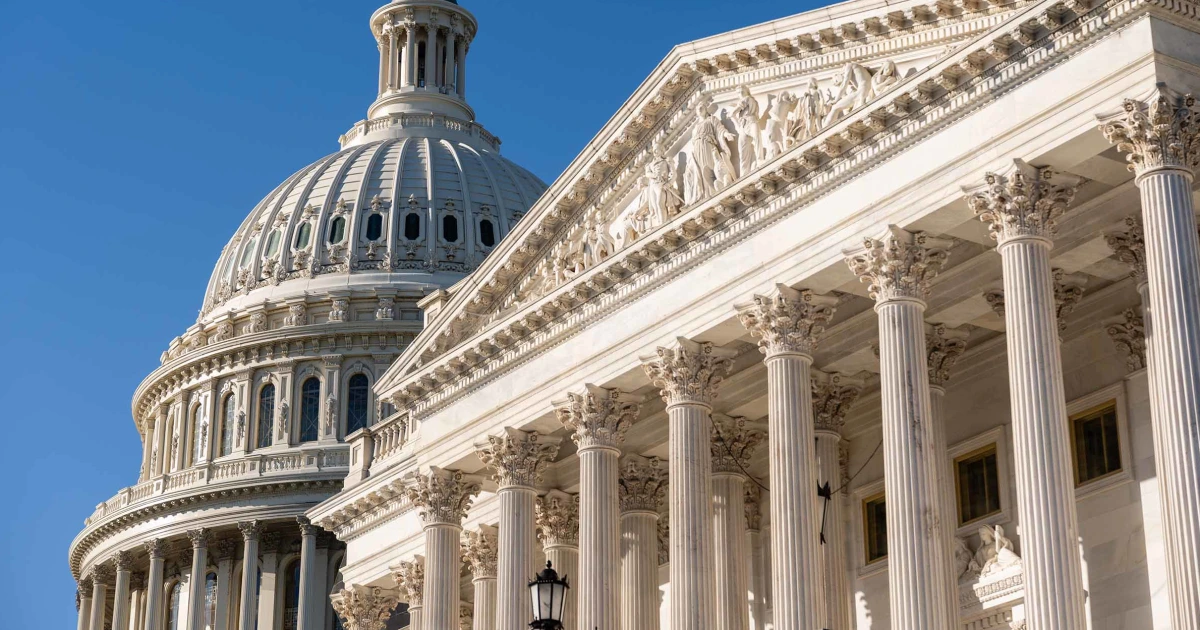Copyright NBC News

Welcome to the online version of From the Politics Desk, a newsletter that brings you the NBC News Politics team’s latest reporting and analysis from the White House, Capitol Hill and the campaign trail. In today’s edition, our Capitol Hill team looks at how a series of deadlines this week could increase pressure on lawmakers to end the government shutdown. Plus, Andrea Mitchell previews President Donald Trump’s meeting with Chinese President Xi Jinping. Sign up to receive this newsletter in your inbox every weekday here. — Adam Wollner Shutdown, Day 29: Pain points start to escalate By Sahil Kapur, Scott Wong and Brennan Leach The pain of the government shutdown is poised to intensify this week as the funding lapse nears a full month with no resolution in sight. A series of deadlines in the coming days could have negative consequences for Americans. Food assistance: Supplemental Nutrition Assistance Program benefits, formerly known as food stamps, are slated to dry up on Nov. 1 without congressional action, affecting an estimated 40 million low-income Americans across red and blue states. New York, Texas and Florida are each home to about 3 million SNAP beneficiaries, according to KFF, a nonpartisan research group. Health care: Open enrollment for the Affordable Care Act begins Nov. 1, a month before subsidies that have helped keep premium costs low are set to expire. Insurers have set higher rates for 2026 in case those subsidies aren’t renewed, with some Americans seeing their premiums double or triple for next year. If Congress acts soon to extend the money, reversing the sticker shock for enrollees will be complicated, but insurers can find ways to lower the bills for them next year. Still, the parties do not appear close to a resolution. Federal worker paychecks: Federal employees are either furloughed or forced to work without pay for the duration of the shutdown. Tuesday marked the first time during this shutdown that certain “excepted” workers, such as Transportation Security Administration agents and air traffic controllers tasked with keeping the skies safe, missed a full paycheck. The longest government shutdown in U.S. history, spanning 34 days in late 2018 and early 2019, ended after air traffic controllers and TSA agents started calling in sick, severely threatening air travel. One of the biggest travel holidays of the year, Thanksgiving, is coming up in just a few weeks. Pay for troops: Two weeks ago, the White House alleviated a major pain point in the shutdown by shifting money around to ensure active-duty military troops didn’t miss a paycheck. Trump directed Defense Secretary Pete Hegseth to find the money to pay the troops; the Pentagon reallocated billions of dollars from research and development programs to service member paychecks. On top of that, a private donor, whom The New York Times later identified as billionaire Timothy Mellon, contributed $130 million to help pay the troops. But that’s a drop in the bucket compared with the roughly $6.5 billion needed for the Pentagon to fund Friday’s paychecks. The Trump administration is now desperately searching for other funding streams to tap into. Price tag: The shutdown is costing the economy about $7 billion per month that won’t be recovered when the government reopens, according to a new report by the nonpartisan Congressional Budget Office. Read more → Trump seeks a truce in a trade war of his own making Analysis by Andrea Mitchell As President Donald Trump completes his self-proclaimed victory lap in Asia after a truce in the escalating trade war with China, you could imagine hearing sighs of relief from the soybean farmers in the Midwest to the inflation hawks in Washington. The unanswered question is whether this is a win in a competition Trump was waging against himself. Indeed, even before he sits down across from Chinese President Xi Jinping, Beijing had signaled it would resume buying American soybeans — although only a down payment on what used to be its annual purchase. And Treasury Secretary Scott Bessent said U.S. negotiators had successfully hammered out a framework for China to postpone its threatened export controls on rare-earth minerals and finally crack down on Chinese-made chemical precursors for the fentanyl claiming so many American victims. But to many economists, foreign leaders and corporate executives, Trump’s retaliatory tariff regime was an unforced error, creating a hidden tax on consumers, risking inflation, and needlessly alienating allies from Canada to Japan and South Korea. The reputational cost is perhaps felt most painfully next door in Canada, America’s second-largest trading partner when counting goods and services and a critical NORAD ally. Already stung by what could have been classic Trump trolling about Canada becoming the 51st state, Ottawa is now reeling over last weekend’s cancellation of bilateral trade talks after the president was upset over a TV ad that used a speech by Ronald Reagan to attack his tariff policy. The conclusion by many commentators on Canadian media? They can no longer trust their closest neighbor. There were also unintended consequences. Given the highly integrated cross-border trade, the tariffs on Canadian aluminum, steel and autos punished industries and consumers in states south of the border, particularly in the Rust Belt that helped propel Trump to victory. Despite criticism that he has been erratic, there is a potential benefit to what some on Wall Street have derided as Trump’s “TACO” tariff threats. It’s the strongman theory of diplomacy, that it’s better to be feared than loved. Leaders from Tokyo to London offered concessions in trade talks with Washington, even if most were frameworks that fell short of detailed and binding agreements. There have also been real successes on Trump’s Asia trip. In the short term, a trade truce with the world’s only other economic superpower provides significant global economic security. The real risk could be the opportunity costs of the White House’s preoccupation with tariffs since April’s “Liberation Day.” While enjoying what could be an artificial intelligence-fueled surge in the stock market, the administration is jeopardizing future economic advances by cutting biomedical research at leading universities, firing top scientists at the National Institutes of Health and the Centers for Disease Control and Prevention, and cracking down on visas for foreign students. At the same time, China is recruiting discouraged American scientists. Xi is also rapidly expanding his country’s scientific and manufacturing base, adding to his advantages in nuclear energy, rare-earth minerals and chips. Trump could be winning the battle and losing the war. That’s all From the Politics Desk for now. Today’s newsletter was compiled by Adam Wollner. If you have feedback — likes or dislikes — email us at politicsnewsletter@nbcuni.com



